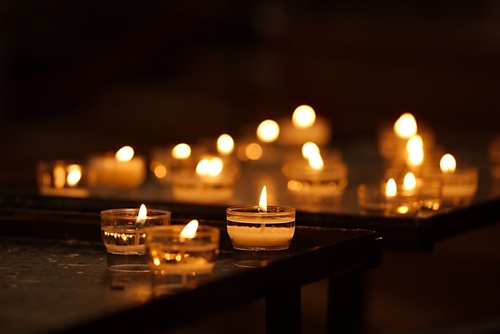
Hindus in South India and Nepal hold a big celebration when a girl menstruates for the first time. The menarche (first menstruation cycle) is a cause for joy: the girl is welcomed to fertile life with a ceremony and gifts. However, after this she is considered impure when menstruating, and banned from domestic activities.
Purity is very important in Hinduism. Food, for example, has to be pure, and since menstruating women are seen as impure or even polluted, they aren’t allowed in the kitchen. In the past this went even further; women were banned from their houses when on their period and had to live in separate menstrual huts, away from their husband and family. Although this custom was banned by the Nepal Supreme Court in 2005, it still happens in some remote areas in Nepal.
A restricted life
In certain places, menstruation is referred to as a curse and women have to live a restricted life for up to 7 days a month. During the bleeding, they can’t touch other persons, bathe, wash or even comb their hair. Entering a temple or prayer room is forbidden too and driving vehicles when on your period is frowned upon as well. It is believed that whatever is touched by an impure woman also becomes impure.
Nowadays these rules aren’t followed that strictly anymore and the taboo on periods is slowly decreasing. Menstruating women are allowed to meditate and can perform certain worshipping rituals. However, they are advised to take even more care with hygiene than they normally do. Despite all this, menstruating also has a positive side in Hinduism: it is seen as a way to get in contact with a higher power. In Kashmiri Hindu culture, menstruating women aren’t considered impure, but given special care as their body becomes weak due to blood loss.
Read also:
Menstruating? No communion!
Menstruating? Fasting forbidden!
Just a natural excretion
Impure for 14 days
Menstruating goddess
Honour your menstruation
Period! is an independent, online magazine about all aspects of menstruation. Period! is not intended as a substitute for medical advice. If you’re suffering from medical complaints, always visit your doctor or GP. Editorial articles can contain affiliate links. Sponsored collaborations can be found in the category Spotlight. Do you have any questions? Check our contact page.






